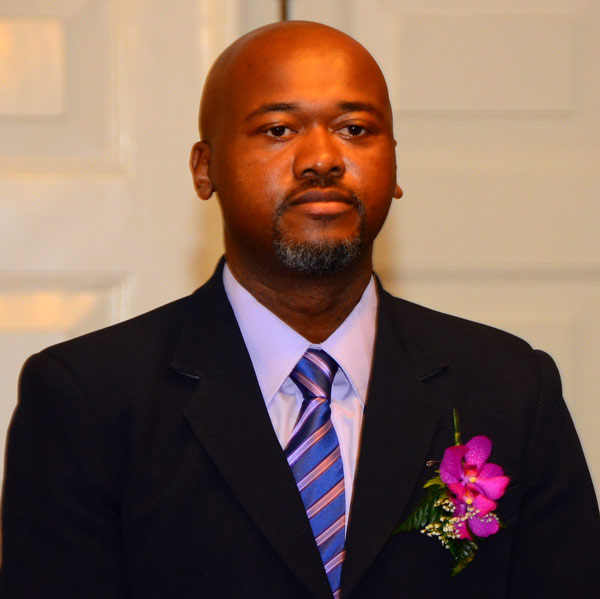By Zhu Lixin in Hefei, Anhui province (China Daily Latin America)
2014-05-19

Lloyd Lucien Pinas, the Surinamese ambassador to China.
If you are a Surinamese student in China and don't know how to start your study paper, you could ask for help from Lloyd Lucien Pinas, the Surinamese ambassador in Beijing.
Although busy with diplomatic affairs, Pinas still tells Surinamese students in China to feel free to contact him for advice when they have problems, especially if they need help writing papers.
When he was appointed the country's ambassador to China in 2011, Pinas planned to focus first on educational exchanges.
Those exchanges, according to him, are not in the form of such things as Confucius Institutes, which promote Chinese language and culture abroad, but those at a higher intellectual level.
Suriname, located on the shoulder of South America, has a population of only about 560,000, among which 3 percent are of Chinese origin.
Bilateral relations between the countries began more than 160 years ago, when the first ship carrying Chinese laborers set off from the Dutch East Indies — today's Indonesia — in 1853 to the Dutch colony.
"People of Chinese origin have been an inseparable part of our community, while I have to say most people in China don't know what Suriname is or where it is located," Pinas, who speaks fluent Chinese, told China Daily.
"In order to make cooperation between our two countries successful, we should understand each other first," Pinas said, during a visit to the University of Science and Technology of China, which is based in Hefei, the capital of Anhui province, on April 27.
Looking at Pinas' nearly 20 years of experience in China, it is easy to see how deeply rooted such thoughts are. From 2002 to 2005, he studied educational sociology at Anhui University in Hefei and received his master's degree there.
One year later, he entered the USTC to study the history of science under the support of the Chinese Government Scholarship programs and received his doctorate degree in 2008, after which he worked for the university for nearly two years as a postdoctoral researcher.
These days, there are more than 30 Surinamese students in Chinese universities, taking majors that range widely, from dentistry to art, psychology to music. Still more Surinamese students come to China for short-term courses every year.
"As a young nation which won its independence from the Netherlands in 1975, Suriname is still weak in educational strengths, so I hope the Chinese universities, including my alma mater, the USTC, can give our youngsters more opportunities," the ambassador said.
Pinas showed enormous interest in communicating with experts from different scientific fields while he was studying at the USTC.
"Whenever I got time, I paid visits to the professors, and I really enjoyed discussing academic issues with them."
With broad interests in Chinese culture and an insightful understanding of the country's history, Pinas became an experienced China hand while still studying in Hefei.
To promote the bilateral relationship, Pinas knows it is also very important to strengthen the two countries' economic ties.
Suriname economically relies primarily on exports of alumina and gold, as well as agricultural products.
"We are now trying to attract more highly-qualified Chinese enterprises engaged in infrastructure construction and agricultural development to invest in our country," Pinas said.
In his speech at the USTC, Pinas displayed his extensive knowledge of many historic figures, including Cao Cao, the warlord and last chancellor of the Eastern Han Dynasty (25-220 AD), and Hua Tuo, the most well-known ancient Chinese physician who lived during the same period.
He is especially interested in traditional Chinese medicine.
"We are now seeking to establish a more profound partnership with Bozhou", said the ambassador, who wants to introduce the TCM culture to his own country and enable his fellow Surinamese to have a better knowledge of using traditional medicine.
Bozhou, a city in Anhui province which is known as the "City of TCM", boasts the world's largest TCM transaction center.
"As a rainforest country, our people have also been using traditional medicine for centuries, while we don't have a systematic understanding of the herbs."
However, many Surinamese don't use medicinal herbs as they don't want to be considered uncivilized.
To combat such a bias, the ambassador would like his people to learn how the Chinese use TCM.
zhulixin@chinadaily.com.cn